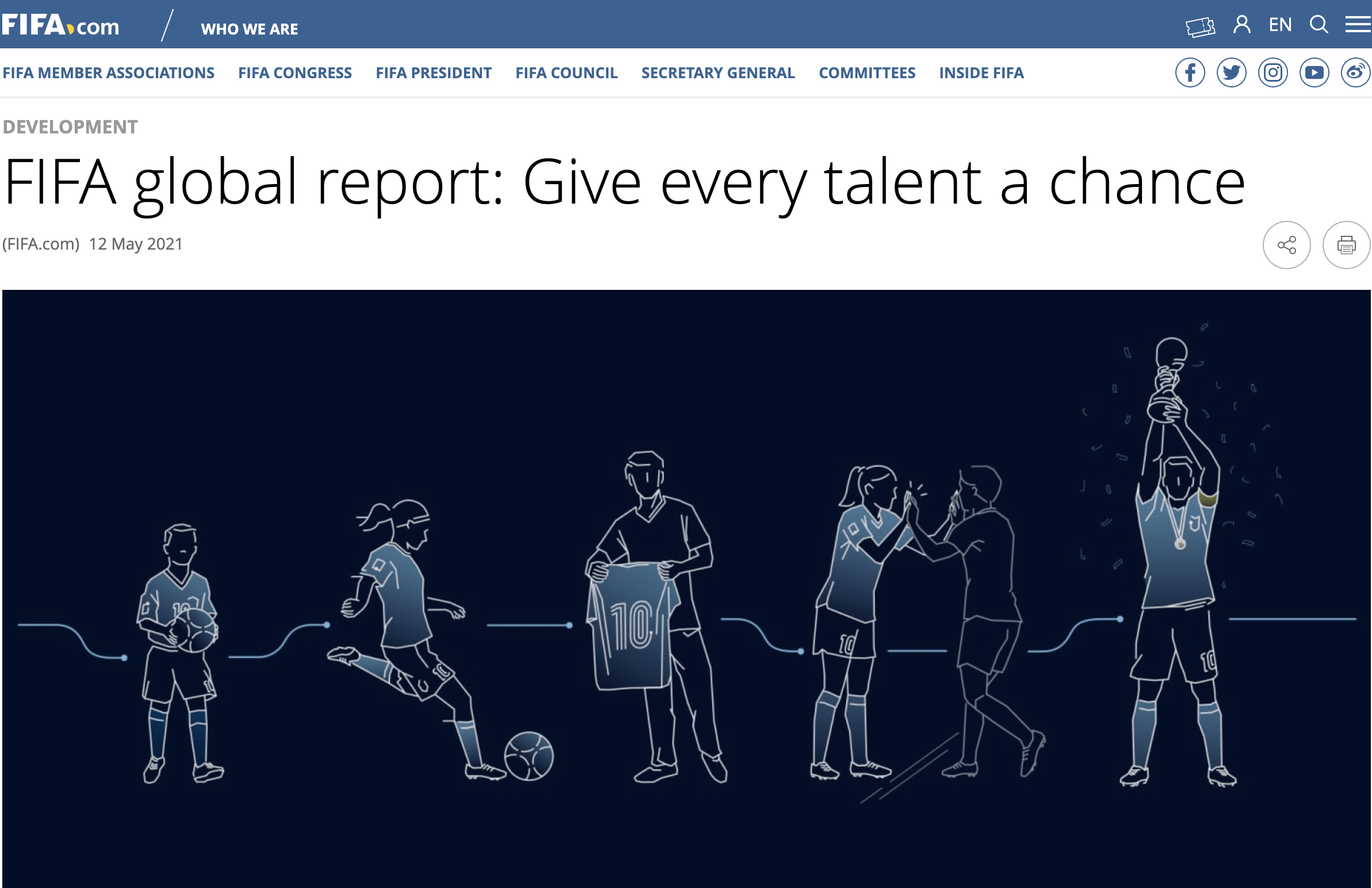For this week’s review of sports news, let’s look at two different developments side by side: FIFA’s year-long study of the global talent development ecosystem, launched just last week, and Genius Sports’ $200 million acquisition of optical tracking provider Second Spectrum, announced earlier this month. Data is central to both: an increasingly developed data landscape enabled FIFA’s deeply insightful findings, which point to talent development as global football’s next frontier. And Genius Sports’ acquisition of Second Spectrum shows the value of the data collection tools that forward-thinking organizations will use to reach that frontier.
Taken together, these developments portend a tectonic change for the beautiful game, as a growing number of formerly disadvantaged communities gain greater access to powerful analytical tools. Let’s dig in to see how.
What FIFA Has Taught Us – Talent Development Democratizes Success
FIFA set out to understand the state of global football, and the report’s findings are a true revelation:
“A great number of talented players go undiscovered” as a result of “lack of planning, quality of education, infrastructure & financial resources to train youngsters.
Money and population aren’t good predictors of success, but talent development very much is.
There’s a huge lack of data globally around performance with regards to player development, but this information shortage is by no means evenly distributed:
- 65% of the top 20 associations are investing in high-quality video and data management solutions for talent ID.
- By contrast, nearly 70% of academies worldwide do not currently use video analysis for player development.
The FIFA report challenges assumptions. For a long time, most people assumed the richest countries had the best shot at success on the pitch, but the data tells us something different: no matter where a player comes from, if the right development structures are in place, then anybody can achieve success. If talent development is football’s next frontier, then talent development infrastructure is what allows the democratizes successfully reaching that frontier. It changes talent economics and dynamics across the industry.
The entire football world now has access to some profoundly powerful insights and none of them would be possible without the one common dominator we are seeing week in, week out: data.
Those top 20 associations have got this figured out and they’re driving a huge wedge in the market, accelerating quickly. The question for everyone else is how to catch up.
Data gives the ‘how’
This is where Genius Sports’ purchase of Second Spectrum comes into play. Buying the official optical tracking provider of the NBA, Premier League, and MLS got lots of attention in the industry and rightly so.
By turning video into structured data, the Second Spectrum platform essentially decodes performance: coaches can know definitively who’s performing and who isn’t.
Rather than infer from video, they can analyze every piece of information to quantify exactly what great performance looks like. They can reverse engineer success.
Having access to that data was what made the deal worthwhile for Genius Sports because they can monetize that information through media, sponsorships, and gambling. For them, data was the prize. But for vast swaths of the football world, data is the means to better talent development.
The Professionalization of Talent Development is Upon Us
We know there’s a massively large population of youth worldwide who aren’t served by any focused talent development infrastructure. The president of FIFA stated they want a world where any country can win the World Cup and any boy or girl anywhere in the world can be the next superstar. I have no doubt FIFA and other leaders in global football will be as good as their word and waste no time in getting after this problem, to “give every talent a chance.” And when they do, technology solutions will have an incredible opportunity to add value, helping organizations rapidly analyze a host of new information to identify exceptional performance.
In short, professionalization of talent development structures is the key to success for domestic leagues and international teams, and analysis is the key to that professionalization.
Imagine what will happen as that capability spreads and teams can reverse engineer the talent development process in the ways that innovative technology will allow. Global football will know how to find and grow more and more talented players from an otherwise untapped reservoir. This impact will be incredible.
I’ll be sharing thoughts on sport’s most impactful developments and news on an ongoing basis. I welcome your feedback on Twitter or at stephen@kitmanlabs.com.




 More than Equal’s mission is to close the gender gap in motor sports and find and develop the first female Formula 1 world champion. They will now have an advanced operating system to centralize data for female drivers participating in More than Equal’s pioneering Development Programme.
More than Equal’s mission is to close the gender gap in motor sports and find and develop the first female Formula 1 world champion. They will now have an advanced operating system to centralize data for female drivers participating in More than Equal’s pioneering Development Programme.